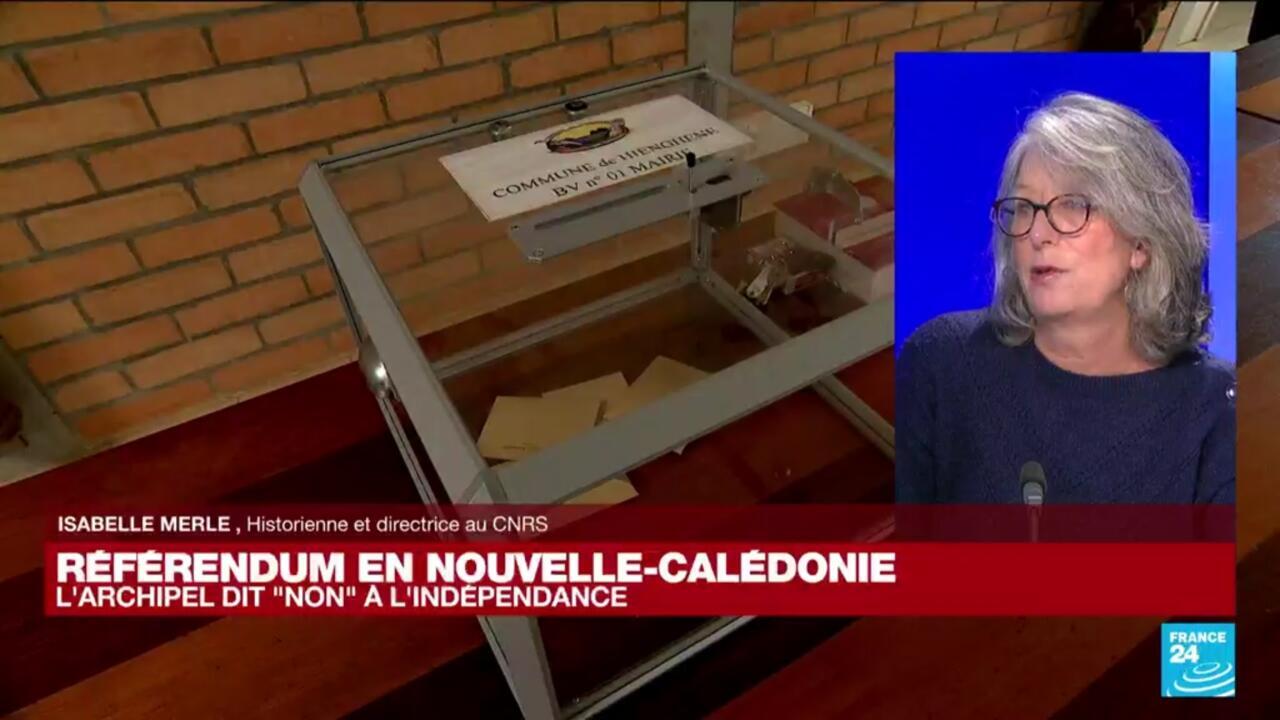According to provisional results provided by the High Commission of the Republic, the "no" to independence won 96.5% of the vote on Sunday - a much higher level than in the 2018 and 2020 referendums, where it had respectively obtained 57% and 53% of the votes. But the ballot was marked by the collapse of participation, which stood at only 43.9%, against nearly 80% in 2020 and 73.7% in 2018. For the historian Isabelle Merle, this abstention is the mark of "a failure, of a political impasse, and even of a political fault from the point of view of the history of New Caledonia. [...] It is a consultation which was emptied of its meaning [...] and it is distressing, after this long process of decolonization, to arrive at this loss of meaning. "
The CNRS research director regrets the non-postponement of the referendum to a more favorable moment.
"It would have been easy to postpone it to 2022, everyone would have been responsible for this consultation. For all parties, it was essential."
The separatists had called on voters to boycott the election for lack of obtaining its postponement, which they demanded due to a sharp increase, since September, in cases of Covid-19 contamination.
With AFP and Reuters
The summary of the week
France 24 invites you to come back to the news that marked the week
I subscribe
Take international news everywhere with you!
Download the France 24 application
google-play-badge_FR

